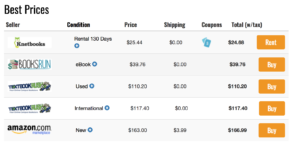Being a salesperson isn’t easy. It requires a combination of interpersonal and technical skills to engage and establish trust with the right people. These also happen to be business skills required in virtually every sales position.
Finding great salespeople isn’t easy, either. According to the Harvard Business Review, the turnover of salespeople in the US is as high as 27 percent. That’s more than twice the average of other professions. And there are a few reasons for that.
One of the biggest, according to Forbes, is a lack of proper training and mentorship, which leads to poor performance and, ultimately, departure from the company. Without the necessary training, guidance, and motivation, salespeople are set down a path of missing goals and low morale. This is bad news for everyone, as US companies spend more than $15 billion a year training salespeople and $800 billion on performance incentives. Every lost salesperson is a lost investment—and a big one at that.
That’s why Thermo Fisher Scientific—the world leader in serving science—introduced their Sales Development Program. This program is what every sales role should be built on: They guarantee training, coaching, mentorship, and the kind of experience required to have a successful career in sales. And since sales skills are transferrable to other disciplines and are foundational for almost any role you could have at a company, gaining that kind of experience early on in your career is invaluable.
Sales teams are, at the end of the day, responsible for driving revenue and ensuring that a business is successful. Given the important work that Thermo Fisher does, this takes on an even deeper, more important meaning. Without their sales teams, they wouldn’t be able to work toward their mission of enabling their customers to make the world healthier, cleaner, and safer. That’s pretty high stakes, right?
We spoke to Brianna, a graduate of Thermo Fisher’s Sales Development Program, about why the company invests so much in their sales team, what the program is like for new grads, and why they can help your career.
Thermo Fisher Teaches You The Skills You Need To Succeed
Sales is a field with a surprising number of specialized skills. You need to understand territory research, building a pipeline, identifying pain points, problem-solving, and—of course—negotiation.
As you might’ve noticed, many of these skills require a mix of art and science. And that’s why the Thermo Fisher Sales Development Program focuses on a combination of direct learning and guided trials.
“The first part of the program is spent learning about the company, the mission, and, what we do,” says Brianna, who graduated in 2018 and began a Sales Development Program shortly after. This first part of the program is more than just sales training. “It’s preparation to be what a Thermo Fisher employee should be. Living up to our mission every day,” she says.
“It’s more than just something that fills our days. At Thermo Fisher, our work has a purpose. Our work requires passion and creates meaningful outcomes. Our work matters. We’re sharing our expertise and technological advancements with customers, helping them make the world a better place—whether they’re discovering a cure for cancer, protecting the environment, or making sure our food is safe,” she adds.
In addition to learning about the company and the products, both of which are essential for any salesperson, they also learned about sales-specific methodologies and skills. Brianna and her cohort learned about the process required not only to close deals, but also to maintain a healthy pipeline of potential deals and relationships. Doing so ensures they’re successful in the long-term.
After the initial learning period, Brianna says, you start hitting the phones to hone the skills you’re acquiring. “You’re making phone calls to get the nerves and jitters out,” she explains. All of this training is focused on one goal. “It’s so that, once you step into the field, you’ll be ready,” Brianna says.
As your phone and technical skills develop, you’ll start taking on a temporary territory—a region where you’ll pursue leads and turn opportunities into customers. And that combination of learning by experience and learning through formal coaching and mentorship will continue until it’s time to explore your next step at the company.
Learn Where You Fit In The Company—And Why Your Role Is So Essential
The culmination of the Sales Development Program is an interview process that connects you with potential managers who will guide you once you’re promoted to a permanent team.
For Brianna and her class, most of the interviews took place at a major sales conference. She and her peers were able to not only attend the event and learn from senior leaders, but also interview with those same leaders and find their next step at the company.
“We’re investing in you. We want you to be not only a good fit for the company, but a good fit for the job. We want you to be prepared when you get there,” Brianna says.
Brianna and her peers identified managers, office locations, and departments that were best suited to their skills and interests. It’s much more of a matchmaking process than an intimidating interview procedure. The company has, after all, invested as much of their time in you as you have in them.
And once you and your future manager find the right match, you’ll be promoted and take on your next step at the company. When that begins, you—and Thermo Fisher—will really start to see dividends on the investment in your growth.
Become An Expert And Drive A Multibillion-Dollar Company’s Mission Forward
Since Thermo Fisher is on a mission to make the world healthier, cleaner, and safer, they develop tons of new products and services that help accomplish that goal. Still, none of that innovation matters if it doesn’t reach the hands of science professionals.
This is why the company’s investment in the Sales Development Program is so large: The mission means everything to the team at Thermo Fisher, and there couldn’t be something more mission-critical than making sure the products reach the professionals who can use them to change the world for the better.
As one Thermo Fisher Senior Director, Chloe, told us, “Not every sales professional has the opportunity to sell products that make such a meaningful impact on improving the world. What we sell helps find cures for cancer, makes sure the air we breathe is clean, the food we eat is safe, and delivers life-saving treatments to market faster. That’s extremely important.”
And she’s totally right. Thermo Fisher products have an immediate effect on the world around them and the people who rely on them. That makes selling Thermo Fisher products different than your normal sales process. It’s not that you need to convince people to buy things they don’t need. The task is primarily reaching the right people and demonstrating value to them in a way that thoughtfully addresses their problems. That, by the way, is exactly what you learn to do over the course of the Sales Development Program.
Contributing in such an important way to an organization responsible for Nobel Prize-winning feats of science as well as global STEM education philanthropy is exactly why Brianna and her colleagues on the sales team feel so much purpose in their roles.
Interested in learning more about sales and other development programs? Learn more about Thermo Fisher on WayUp!













